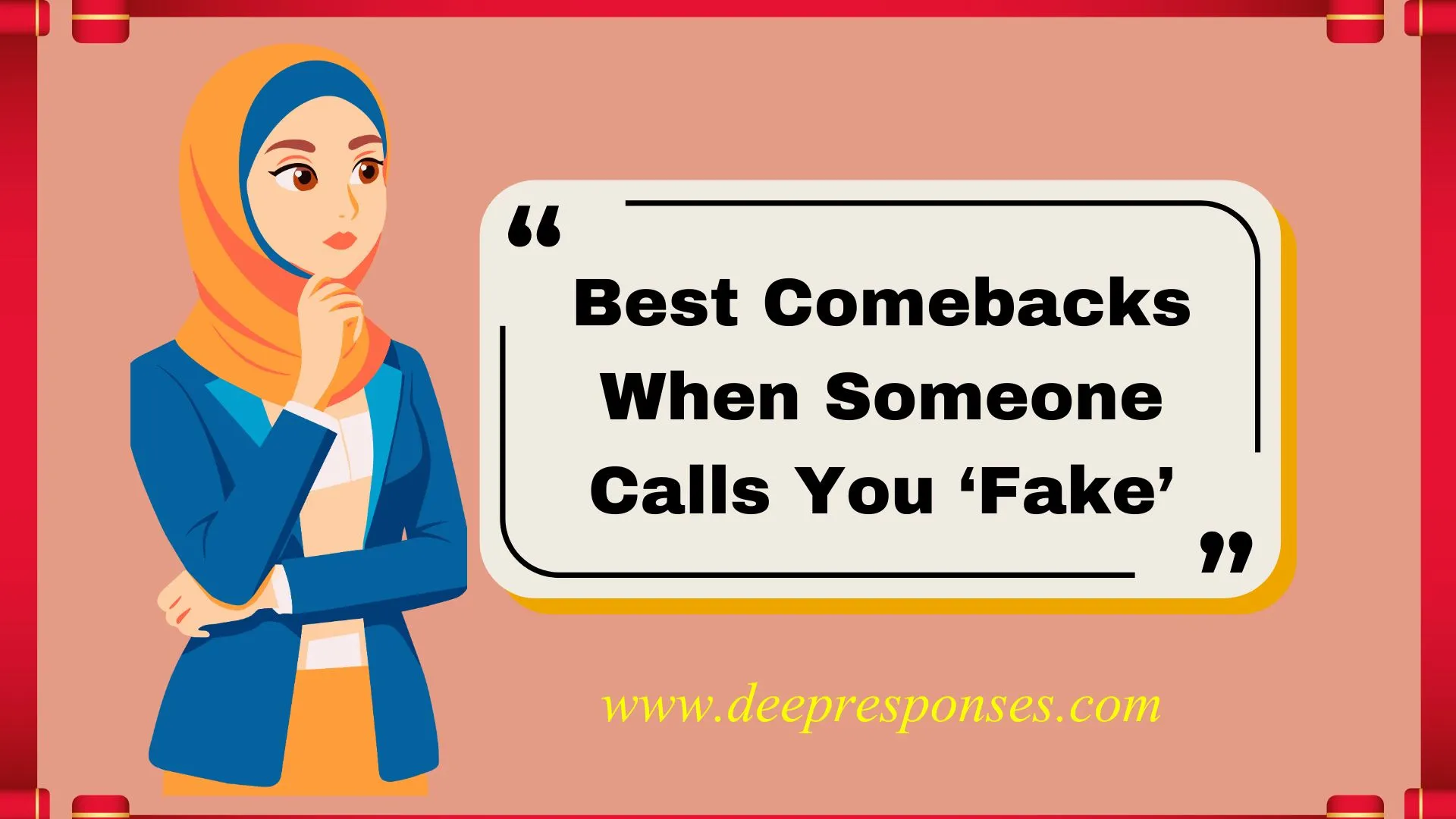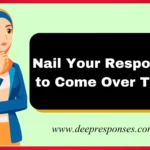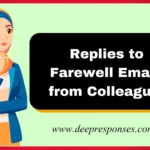Being called fake can be a frustrating experience, but it’s important to respond with confidence, wit, and grace. In this article, we’ll explore 25 creative comebacks to help you deal with such situations.
These replies range from funny and sarcastic to kind and reflective, ensuring you have the perfect response for any scenario. Whether you’re facing criticism in real life or online, these replies will help you maintain your composure and show your authenticity.
1. Why Do You Think I’m Fake? – Questioning the Accusation
- What makes you say that?
- Care to explain why you feel that way?
- I’m curious—what do you mean by ‘fake’?
- Could you give an example?
- Do you think that reflects more on me or you?
- Have you considered another perspective on this?
- Why does this bother you so much?
- What’s your definition of ‘fake’?
- Is this about something specific I’ve done?
- What’s the real issue here?
2. I’d Rather Be Real Than Perfect – Highlighting Authenticity
- I never claimed to be perfect, just real.
- Being myself matters more than fitting your mold.
- At least I’m not pretending to be someone else.
- I’m happy being me, flaws and all.
- Perfection is boring; authenticity is better.
- Real people sometimes make mistakes—just like me.
- I don’t live to meet everyone’s expectations.
- Authenticity is subjective, isn’t it?
- If being myself bothers you, that’s on you.
- My realness doesn’t require your validation.
3. I’m Sorry You Feel That Way – Neutral and Diplomatic
- It’s unfortunate you think that.
- I’m sorry if I gave you that impression.
- Thanks for sharing your perspective.
- That’s an interesting opinion.
- I’m not sure why you feel this way, but okay.
- We clearly have different views on this.
- I’d rather focus on positivity, but I hear you.
- Your feelings are valid, even if I disagree.
- I hope we can move past this misunderstanding.
- Thanks for your honesty; I’ll think about it.
4. Fake Is Your Opinion, Not My Reality – Owning Your Identity
- That’s your perspective, not my truth.
- Opinions like that don’t define me.
- Your label doesn’t match who I am.
- I define myself, not your judgment.
- Think what you want—it doesn’t change me.
- You see what you choose to see.
- Labels are for clothes, not people.
- You can call me fake, but I know who I am.
- I’ve learned not to take these comments personally.
- Your words say more about you than about me.
5. Are You Perfect Then? – Turning the Tables
- If I’m fake, what does that make you?
- Have you looked in the mirror lately?
- Should I compare myself to your perfection?
- What makes you the judge of realness?
- If I’m fake, does that make you flawless?
- Let’s discuss your authenticity next.
- Everyone’s a critic these days, aren’t they?
- Would you pass your own authenticity test?
- Realness isn’t about pointing fingers, is it?
- Funny, I’ve never heard you called perfect.
6. Thank You for the Feedback – Polite and Unbothered
- Thanks for sharing your opinion!
- I appreciate your honesty.
- Good to know how you feel.
- That’s an interesting take on me.
- I’ll keep that in mind, thanks!
- You’ve given me something to think about.
- Thanks, I value your perspective.
- Your feedback is noted!
- I’ll reflect on this, truly.
- Thanks, I’ll continue being me!
7. Actions Speak Louder Than Words – Let Your Behavior Do the Talking
- I’ll let my actions prove otherwise.
- What you see isn’t always the whole story.
- Words are easy; watch what I do instead.
- You’ll know the truth by my actions.
- I’m not here to explain myself; I’m here to live authentically.
- Time will reveal who’s real and who’s not.
- You can’t fake consistency—watch and see.
- I believe in showing, not telling.
- Judge me by what I do, not what you assume.
- Real actions always shine through fake judgments.
8. What Makes You Think You Know Me? – Challenging Their Assumptions
- How well do you really know me to say that?
- What part of me feels fake to you?
- Do you always judge people so quickly?
- It’s funny how assumptions work, isn’t it?
- Maybe you don’t see the whole picture.
- I’d love to know where this is coming from.
- Do you think you’ve taken the time to understand me?
- Your opinion might change if you got to know me better.
- That’s quite a claim—care to back it up?
- You don’t really know me, though, do you?
9. I Don’t Owe Anyone an Explanation – Confident and Assertive
- I don’t live for your approval.
- My life, my choices, my business.
- I’m not here to explain myself to you.
- Your opinion of me doesn’t change who I am.
- I’m happy with who I am, and that’s enough.
- I don’t owe you an explanation for my authenticity.
- I won’t waste time justifying myself.
- Not everyone needs to understand me—it’s okay.
- I’m not in the business of pleasing everyone.
- My authenticity isn’t up for debate.
10. That’s a Bold Assumption – Lighthearted Sarcasm
- Wow, tell me how you really feel!
- Bold of you to assume, isn’t it?
- Did you come up with that all on your own?
- Are you always this insightful?
- That’s an interesting interpretation of me.
- Fake? That’s the best you’ve got?
- I didn’t know you were an expert in authenticity!
- Please, tell me more about me!
- If I’m fake, what does that make you?
- You must be fun at parties!
11. Let’s Talk About You – Redirecting the Focus

- Why do you feel the need to say that?
- What’s really bothering you?
- Let’s focus on what’s going on with you.
- Are you projecting something here?
- Interesting—what’s your story in all this?
- Why are you so concerned about me?
- Do you always point fingers at others?
- Maybe we should talk about what’s really on your mind.
- Do you feel better saying that?
- What’s going on with you lately?
12. It’s Okay Not to Like Me – Accepting Differences
- You don’t have to like me, and that’s fine.
- I’m not here to be everyone’s favorite.
- We don’t have to agree to get along.
- I’m not everyone’s cup of tea, and that’s okay.
- Your dislike of me doesn’t make me fake.
- We can coexist without liking each other.
- It’s okay to have different opinions.
- Not everyone gets along, and that’s normal.
- I respect that you see things differently.
- You’re free to think what you want about me.
13. That’s Not My Problem – Keeping Your Distance
- Your opinion isn’t my problem.
- Sounds like a you problem, not a me problem.
- I don’t have the time to worry about this.
- What you think doesn’t affect me.
- I’m not here to fix your issues with me.
- That’s something for you to figure out.
- Your judgment doesn’t concern me.
- I’m too busy living my life to care about this.
- If that’s what you think, so be it.
- Not my circus, not my monkeys.
14. Thanks for Noticing – Adding Humor to Defuse the Situation
- Wow, I didn’t know I was so important to you!
- Thanks for pointing that out; I’ll fake it better next time!
- Glad you’re paying attention!
- You caught me—I’m secretly a hologram.
- Well, someone’s observant!
- Wow, Sherlock, you solved the case!
- If being fabulous is fake, guilty as charged.
- I’ll add ‘fake’ to my resume, thanks for the suggestion!
- It must be exhausting keeping track of me.
- You’re right—I’m totally made of plastic.
15. Let’s Agree to Disagree – Keeping the Peace
- We clearly see this differently, and that’s okay.
- It’s fine if we don’t agree on this.
- I respect your opinion, even if I don’t share it.
- You have your perspective; I have mine.
- There’s no need to argue—we can just disagree.
- I’m okay with different views, are you?
- Not everyone has to see eye to eye.
- We’re not on the same page, and that’s fine.
- Let’s just move on from this, shall we?
- Life’s too short to argue about this, don’t you think?
16. Does That Really Matter? – Shifting Priorities
- Does this really need to be a big deal?
- Is being ‘real’ that important to you?
- Does it truly matter what you think of me?
- Isn’t life about bigger things than this?
- Why focus on something so trivial?
- Do you think this changes anything?
- Is this really the hill you want to die on?
- What’s the bigger picture here?
- Does labeling me as ‘fake’ make a difference in your life?
- Are we really spending energy on this right now?
17. I’m Comfortable with Who I Am – Standing Firm
- I’m confident in who I am, and that’s enough.
- I know my truth, and that’s what matters.
- I’m at peace with myself, fake or not.
- I don’t need to prove my authenticity to anyone.
- I’m secure in my identity—are you?
- My self-worth doesn’t depend on your opinion.
- I’m happy being me, regardless of what you think.
- I’ve worked hard to accept myself, and I won’t let this bother me.
- Real or fake, I’m content with who I am.
- Your words don’t shake my confidence.
18. Everyone’s a Work in Progress – Acknowledging Imperfections
- We’re all figuring ourselves out, aren’t we?
- Nobody’s perfect, and I’m no exception.
- I’m growing, just like everyone else.
- Every day is a chance to improve—fake or not.
- Being ‘real’ doesn’t mean being flawless.
- I make mistakes, but that doesn’t make me fake.
- Authenticity is a journey, not a destination.
- I’m learning more about myself every day.
- We’re all evolving, and that’s okay.
- I embrace my flaws as part of who I am.
19. Isn’t Everyone a Little Fake? – Reflecting on Human Nature
- Don’t we all put on masks sometimes?
- Everyone plays a role now and then, don’t they?
- Authenticity is subjective, isn’t it?
- Isn’t being human about contradictions?
- We all adapt to situations—does that make us fake?
- Nobody’s 100% authentic all the time.
- We all try to fit in somewhere, don’t we?
- Does adapting make someone fake?
- Being real doesn’t mean being static.
- Who’s to say what’s truly fake or real?
20. What Does ‘Fake’ Even Mean? – Challenging Definitions
- Define ‘fake’ for me—what does it mean to you?
- Do you think fake is just another word for different?
- What’s your criteria for calling someone fake?
- Could it be that your definition is too narrow?
- What’s the opposite of fake in your view?
- Does fake mean being different from what you expect?
- Maybe fake just means misunderstood.
- Who decides what’s real or fake?
- Is it fake to change and grow?
- Could fake just mean complex?
21. You Do You, I’ll Do Me – Respecting Individuality
- You live your truth, and I’ll live mine.
- Let’s just focus on being ourselves.
- I don’t need to match your version of real.
- We’re all unique, and that’s what matters.
- You be you, and I’ll keep being me.
- Let’s agree to respect our differences.
- Authenticity isn’t one-size-fits-all.
- I respect your journey; respect mine too.
- We’re all authentic in our own way.
- Individuality makes life interesting, don’t you think?
22. Why the Need to Judge? – Addressing Their Criticism Directly
- Why is judging others so important to you?
- Do you feel better after saying that?
- What do you gain by labeling me this way?
- Is this really about me or something else?
- Why not try understanding instead of judging?
- Does criticizing me make you feel validated?
- What are you hoping to achieve by saying that?
- Is your judgment of me worth your energy?
- Are you always this quick to label people?
- Does judging me solve anything for you?
23. Let’s Keep It Positive – Redirecting to a Better Conversation

- Can we focus on something positive instead?
- How about we talk about solutions, not labels?
- Negativity won’t get us anywhere—let’s move forward.
- I’d rather have a productive conversation than argue.
- Life’s too short to dwell on judgments.
- Let’s channel this energy into something meaningful.
- How about we focus on what’s working?
- We all have flaws; let’s not dwell on them.
- What can we do to make this conversation better?
- I’d prefer to focus on what’s good in life.
24. That’s Just Your Opinion – Staying Unbothered
- You’re entitled to your opinion, even if I don’t agree.
- Everyone has a right to their perspective.
- That’s one way of looking at it, but not the only way.
- I respect your right to think that, even if I disagree.
- Your opinion doesn’t define who I am.
- You see things your way, and I see things mine.
- Thanks for sharing your view, but I see it differently.
- Not everyone will agree with me, and that’s okay.
- Your opinion is noted but doesn’t affect me.
- Let’s agree to see things differently and move on.
25. I Know My Worth – Staying Self-Assured
- Your words don’t change how I see myself.
- I know who I am, and I stand by that.
- I value myself regardless of your opinion.
- I’m confident in my identity.
- I know my worth, and that’s not up for debate.
- My self-esteem isn’t tied to your judgment.
- I trust myself more than I trust your words.
- I’ve worked hard to build my confidence, and I won’t let this shake me.
- I don’t need your validation to feel good about myself.
- My value isn’t dependent on anyone else’s opinion.
.Key Points:
- Casual Context:
When used among friends or family, it typically expresses excitement or anticipation of a near-future meeting. Responding warmly reinforces your bond, such as saying, Can’t wait! - Professional Setting:
In professional contexts, See You Soon signals an upcoming meeting or follow-up. Keep responses professional yet friendly: Looking forward to it! - Ambiguous Scenarios:
Sometimes, See You Soon might feel less sincere or vague. It’s okay to seek clarification or respond neutrally: Sure, let me know the time!
Responding to See You Soon in Different Scenarios
Your response should fit the situation. From casual gatherings to work meetings, tailor your reply to reflect the mood and relationship. A thoughtful response can enhance communication.
Key Points:
For Close Relationships:
Use responses that reflect warmth and excitement. Examples include:
- I’m counting the minutes!
- Can’t wait to catch up!
- It’ll be great to see you!
For Professional Relationships:
Maintain a polite and concise tone. Examples include:
- Sounds great, see you at [time]!
- Looking forward to the discussion.
- I’ll be there—see you soon.
For Unexpected Situations:
If See You Soon surprises you, respond diplomatically:
- Oh, didn’t realize we’d meet—let’s plan it!
- Sure, let’s figure out the details.
- I’ll keep my schedule flexible.
Alternative Phrases to Use Instead of See You Soon
Sometimes, variety keeps conversations fresh. Using alternatives to See You Soon can personalize the tone or fit unique scenarios.
Key Points:
Casual Alternatives:
- Catch you later!
- Talk to you soon!
- See you in a bit!
Formal Alternatives:
- I’ll see you shortly.
- Until next time.
- Looking forward to our meeting.
Playful or Creative Options:
- Can’t wait for our next adventure!
- See you on the flip side!
- Until we meet again!
Non-Verbal Communication Matters
Sometimes, non-verbal cues amplify or replace verbal responses. A smile, wave, or eye contact can convey sincerity and warmth.
Key Points:
Body Language:
A genuine smile and friendly wave make See You Soon feel heartfelt. It shows enthusiasm, especially when words are unnecessary.
Tone of Voice:
Your tone can transform a generic reply into a sincere one. Use a warm, upbeat tone to express excitement or a calm tone for professionalism.
Facial Expressions:
Even over video calls, maintain approachable expressions. A nod or laugh can convey friendliness and positivity when replying.
Mistakes to Avoid When Responding to See You Soon
A well-intended phrase like See You Soon can lead to misunderstandings if mishandled. Avoid these common mistakes to ensure your response is positive and respectful.
Key Points:
Being Overly Dismissive:
Responding with Yeah, whatever or ignoring the phrase can seem rude. Always acknowledge the sentiment to show respect.
Forgetting the Context:
Misreading the tone can lead to mismatched replies. For example, using See you when I see you in a professional setting may appear careless.
Overthinking the Response:
Don’t stress over being perfect. Simple and genuine replies like Sure, see you soon! work best for most situations.
Why It’s Important to Personalize Your Response
Personalized responses show attentiveness and strengthen connections. Tailoring your reply makes your communication more meaningful.
Key Points:
Strengthens Relationships:
Personalized replies like, Looking forward to catching up over coffee! add warmth and sincerity, making the interaction memorable.
Fits the Tone of the Relationship:
Adjust your response to match the relationship. For example, be casual with friends but maintain professionalism with colleagues.
Avoids Miscommunication:
A tailored response reduces ambiguity. Saying, See you at the 3 PM meeting, avoids confusion about the time and purpose.
Conclusion
See You Soon is more than just a phrase—it’s an opportunity to express positivity and build stronger connections. By understanding the context, tailoring your response, and avoiding common mistakes, you can ensure every conversation ends on a high note. Whether you use verbal, non-verbal, or alternative expressions, always strive to communicate with sincerity and warmth.
FAQs
1. What is the best response to See You Soon?
The best response depends on the context. For friends, try Can’t wait! For work, use Looking forward to it!
2. Should I always respond verbally to See You Soon?
Not always. Non-verbal cues like a smile, nod, or wave can be equally effective, especially in casual settings.
3. Can See You Soon have different meanings?
Yes. It can express excitement, formality, or even ambiguity depending on the tone and relationship.
4. Are there better alternatives to See You Soon?
Absolutely! Try Catch you later, Until next time, or Looking forward to it.
5. How can I personalize my response?
Mention specific details, like See you at the game! or Looking forward to discussing the project.











